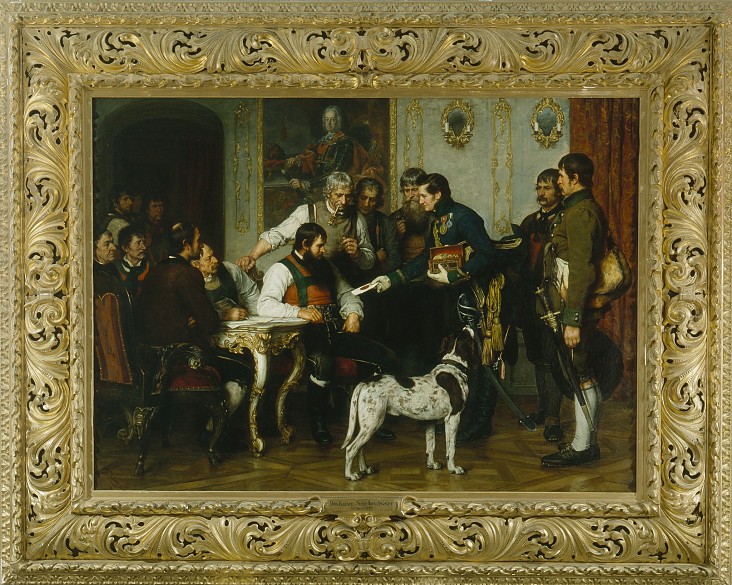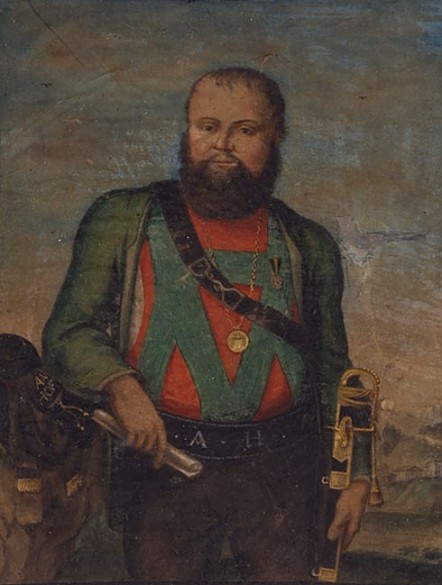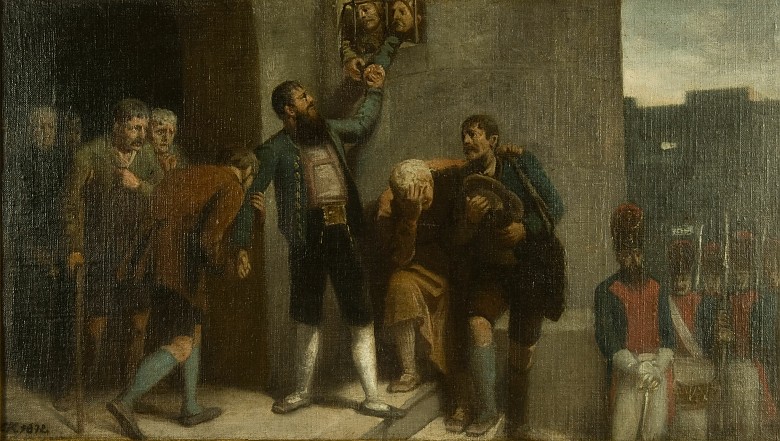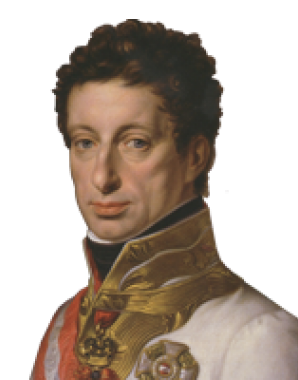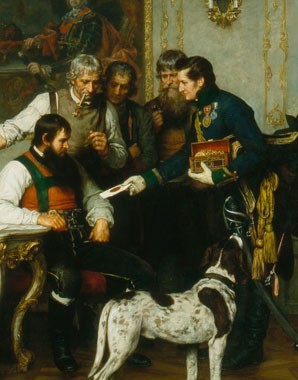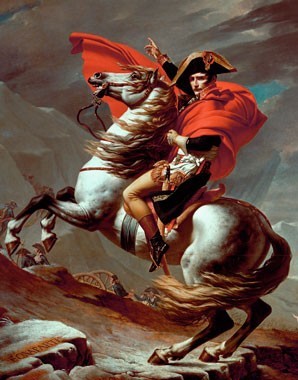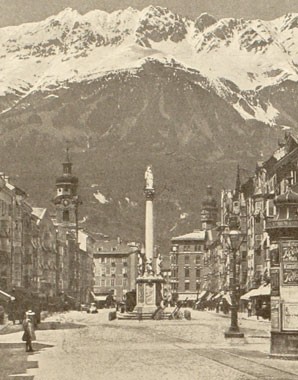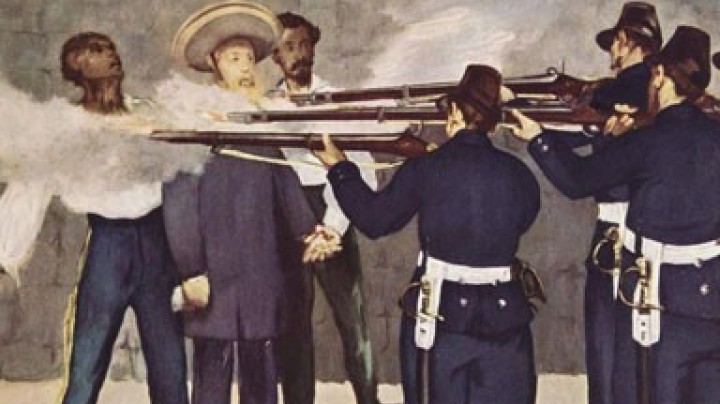Resistance in the ‘holy land’ of Tyrol: a Tyrolean Taliban?
For his devotees he is a patriot and popular hero, for his critics a reactionary Alpine bumpkin: Andreas Hofer, commander of the Tyrolean resistance against Bavaria and France.
First verse of the Andreas Hofer Song, composed around 1840 and still the anthem of the Austrian federal province of TyrolZu Mantua in Banden
Der treue Hofer war,
In Mantua zum Tode
Führt ihn der Feinde Schar.
Es blutete der Brüder Herz,
Ganz Deutschland, ach, in Schmach und Schmerz.
Mit ihm das Land Tirol,
Mit ihm das Land Tirol.[Hofer the true was in chains in Mantua, in Mantua the enemy led him to his death. The hearts of his brothers bled for him, all Germany in shame and grief – with him the land Tyrol.]
Government decision of 2 June 1948 of the Austrian federal province of TyrolThe text and melody of the Andreas Hofer Song form an indivisible unity. It is thus forbidden to sing its text to another melody or its melody to another text. This prohibition also applies to texts and melodies that are similar to those of the Andreas Hofer Song and only differ from it in non-essential respects.
Napoleon on the Tyrolean struggle for freedomThe Bavarians did not understand how to govern Tyrol – they are not worthy of this brave people, for whose resistance I have the greatest respect.
The Austrian war propaganda hit the mark with the people of Tyrol – the land had to be handed over to Bavaria after the defeat of 1805, but there was soon resistance to the new foreign rulers. The Tyrolean peasantry, who since medieval times had enjoyed relatively extensive freedoms in the form of a constitution based on estates, now saw their privileges jeopardized. The popular anger that broke out with the resounding slogan ‘Mander, s’ischt Zeit’ (‘Men, it’s time’) was motivated not so much by reverence for the Habsburgs as by resentment at the loss of ancient rights and popular religious traditions. The resistance against Bavarian-French rule was led by Andreas Hofer, who was not only a farmer and landlord of the hostelry Am Sand but also a debt-ridden horse- and wine-dealer.
While Archduke Karl was celebrating his victory at Aspern, Hofer, who called himself a ‘commander by appointment of the House of Austria’, was scoring successes on the Bergisel against the Napoleonic troops, prompting Emperor Franz to declare euphorically that Tyrol ‘shall never again be separated from the body of the Austrian imperial state’ and that the only peace treaty he would sign would be one that ‘binds this land indissolubly to My Monarchy.’
However, the Emperor was not able to keep his promise – after the defeat at Wagram was compelled to conclude the treaty of Schönbrunn and accept the loss of Tyrol. Although Hofer fought on, his endeavours were in vain: on 1 November 1809, he was definitively defeated at the last battle on the Bergisel. He himself had to take flight and at the beginning of 1810 was betrayed to the French for 1,500 gulden by the peasant Franz Raffl. Hofer was arrested on the Pfandleralm, sentenced to death by a court martial in Mantua and shot on 20 February 1810.
Opinion on Andreas Hofer’s martyrdom has been strongly polarized: while he is revered in conservative Catholic circles as a freedom fighter, critics draw comparisons with the present-day Taliban movement. The comparison is corroborated by his religious tirades against Jews, Freemasons and proponents of the Enlightenment, and also by his decree forbidding women, on pain of rough justice, ‘to wear too little on their breasts and arms, or to cover them with transparent rags’. His betrayer was later called the ‘Judas of Tyrol’, carrying the saint-like veneration accorded him to the highest possible extreme by putting Hofer on the same level as Jesus Christ.
